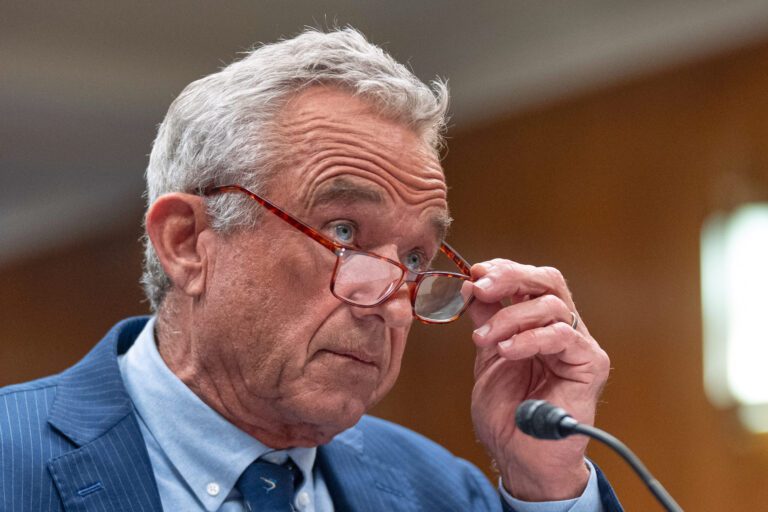ACIP’s New Leadership Faces Scrutiny: Vaccine Policy in Chaos
The Advisory Committee on Immunization Practices (ACIP) is set to hold its inaugural meeting under new leadership this Wednesday. This comes shortly after Health and Human Services Secretary Robert F. Kennedy dramatically replaced all former board members, reducing the panel from 17 to just 8. Many of the newly appointed members are known for their vaccine skepticism, raising concerns about the future of vaccination policy in the United States.
Concerns from the Medical Community
Already, there are escalating worries among medical professionals and lawmakers regarding the potential implications of this modified ACIP panel. Critics fear that upcoming presentations at the meeting may amplify vaccine hesitancy by spotlighting risks without adequate scientific backing.
Vaccine Presentation Highlights:
- Maternal Pediatric Respiratory Syncytial Virus (RSV) Vaccines: ACIP will vote on these vaccines that are crucial for infant health.
- Influenza Vaccines: Discussion and a vote on vaccines containing thimerosal, a mercury-based preservative, are on the agenda.
Thimerosal: A Controversial Topic
Thimerosal has been a focal point for vaccine critics, including Kennedy himself, who posited in 2014 that it is "immensely toxic to brain tissue," potentially contributing to conditions like autism and ADHD. However, it’s crucial to note that these claims are unsupported by scientific evidence.
- Presentation by Lyn Redwood: The president emerita of Children’s Health Defense is expected to discuss thimerosal in vaccines. Her controversial report claims a link between thimerosal exposure and neurological disorders.
CDC’s Stance
In a recent report, the Centers for Disease Control and Prevention (CDC) dismissed thimerosal concerns, stating that it found "no evidence of harm" related to its use in vaccines.
Shifting Dynamics in Vaccine Policy
With the recent leadership changes, traditional protocols that guided ACIP meetings are reportedly being dismantled. Prior to these changes, CDC official Dr. Melinda Wharton played a crucial role in overseeing the ACIP and its recommendations. Now, her team has been removed from these responsibilities.
Dr. Martin Kulldorff’s Role
The new ACIP chair, Dr. Martin Kulldorff, is known for his skepticism regarding COVID-19 vaccine mandates. He has been vocal about his stance against such mandates, labeling them unscientific and unethical. Dr. Kulldorff is set to kick off the meeting with updates on his controversial viewpoints, including the recommendations on thimerosal-containing vaccines.
Legislative Pushback
Senator Bill Cassidy, a Louisiana Republican, has expressed doubts about the qualifications of the new ACIP members. He criticized the lack of experience some of the members have regarding modern vaccine technologies, particularly mRNA vaccines. In light of these concerns, he is urging Secretary Kennedy to postpone the meeting until the panel achieves a more balanced representation.
Senator Cassidy’s Statement:
"The meeting should be delayed until the panel is completely staffed with more robust and balanced representation—as required by law."
Congressional Tensions
During a recent budget hearing, Kennedy faced backlash from Congress for his abrupt changes to ACIP. The situation escalated when Representative Kim Schrier accused him of failing to uphold a commitment to maintain the integrity of the ACIP’s composition.
Past ACIP Members’ Concerns
In a response to Kennedy’s actions, former ACIP members voiced their fear that the new appointments could undermine the longstanding advancements in U.S. immunization policies, posing a potential risk of increased vaccine-preventable illnesses.
The Future of Vaccination Policy
As the ACIP meeting approaches, Michael Osterholm, head of the Center for Infectious Disease Research and Policy (CIDRAP), announced plans to form a parallel vaccine committee, potentially diminishing ACIP’s role as the primary authority for vaccine recommendations.
Key Takeaways:
- ACIP Reconstitution: Major changes are raising alarms about future vaccine policies and public health.
- Debate Surrounding Thimerosal: Discussions about thimerosal and its implications will be critical in shaping meeting outcomes.
- Legislative Pushback: Senators are expressing their concerns, urging for a more balanced and experienced ACIP.
With the meeting set to commence at 10 a.m., all eyes will be on how these changes might influence vaccine accessibility and public trust in immunization practices.
For more information regarding vaccine policies and updates, visit the CDC’s official website.


